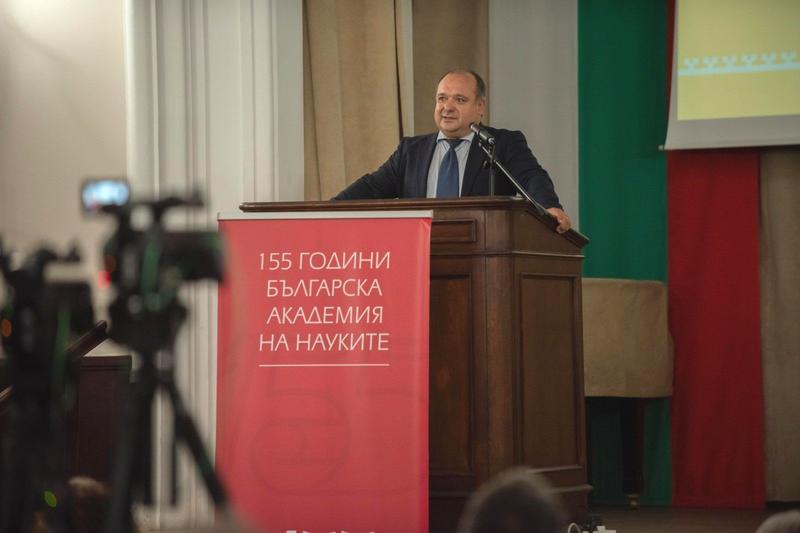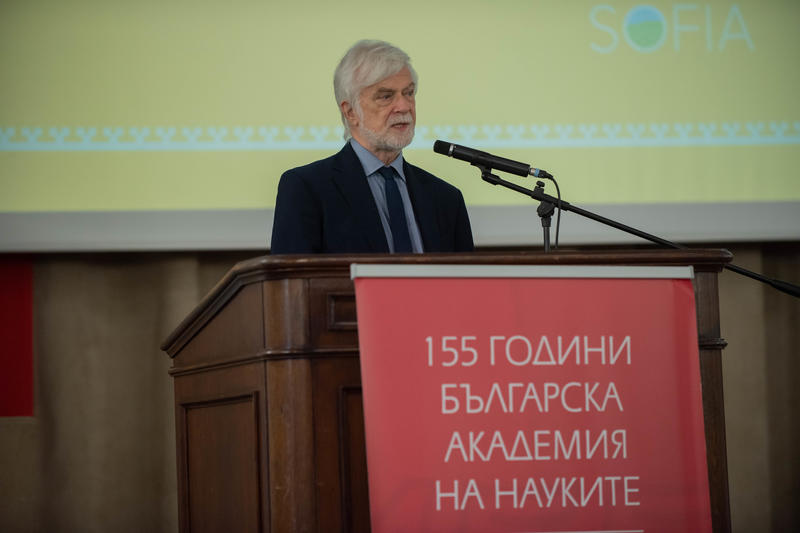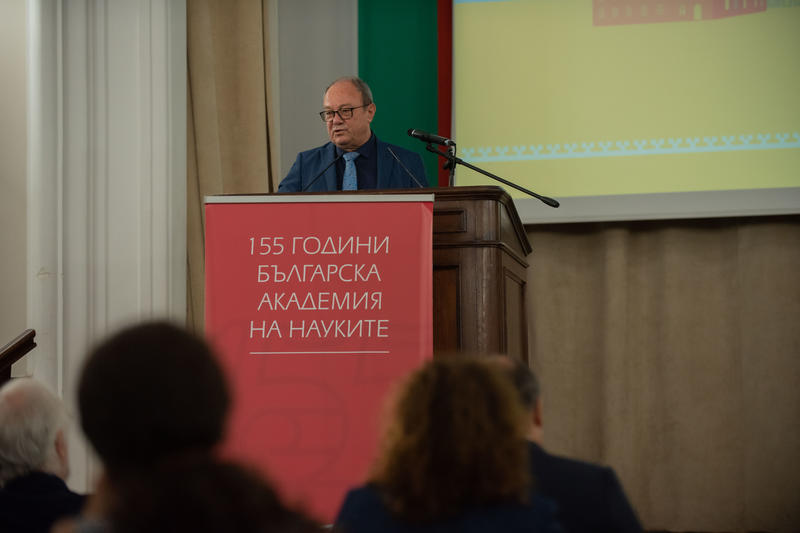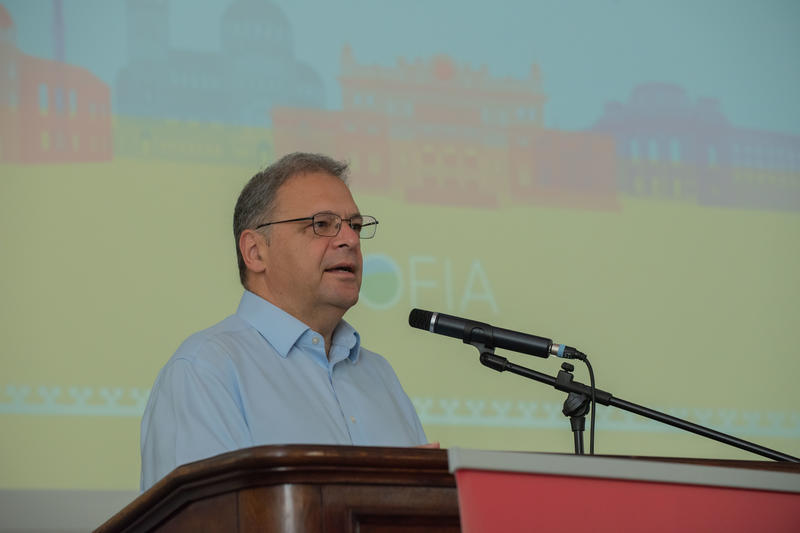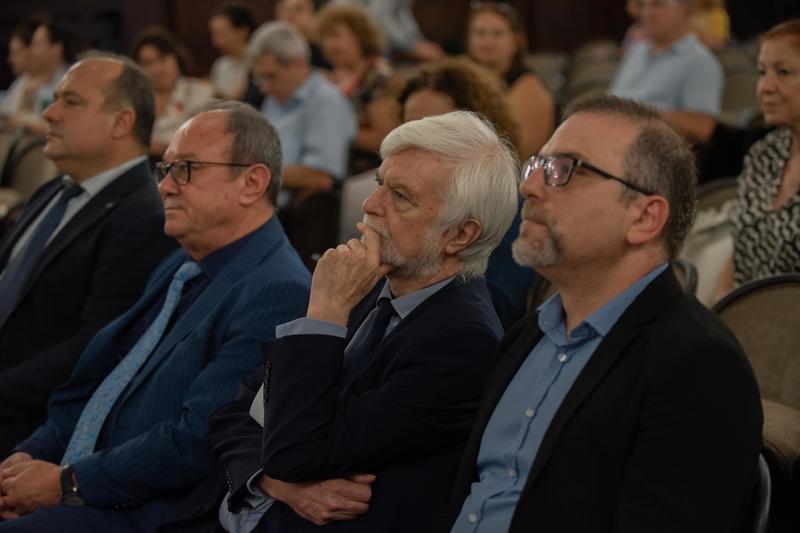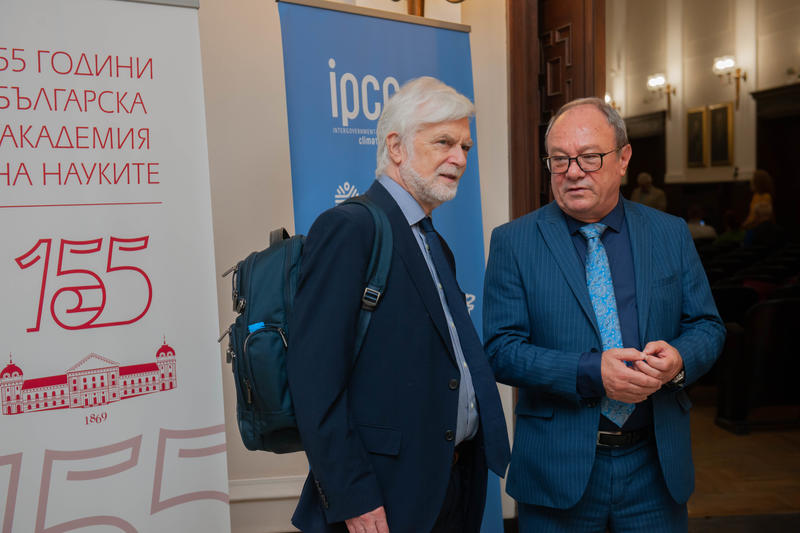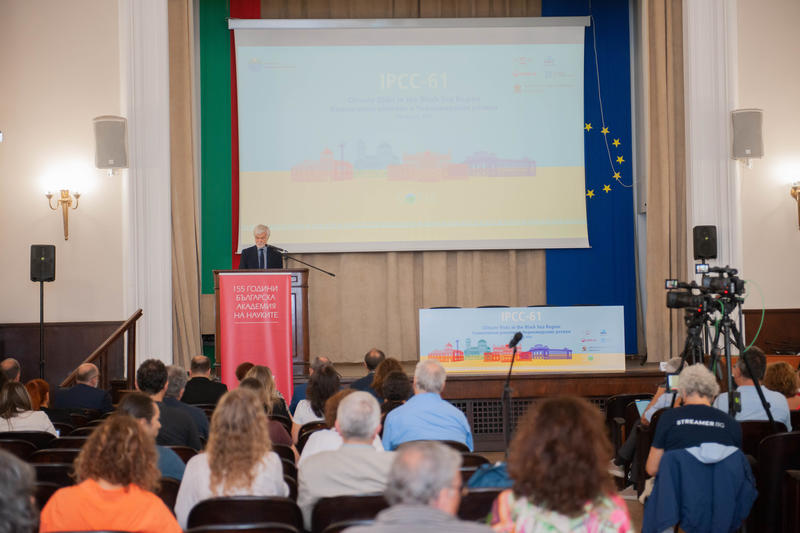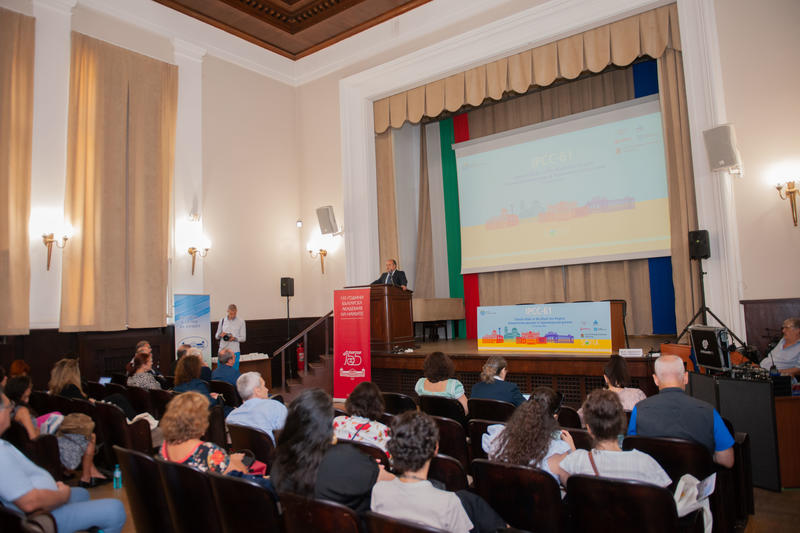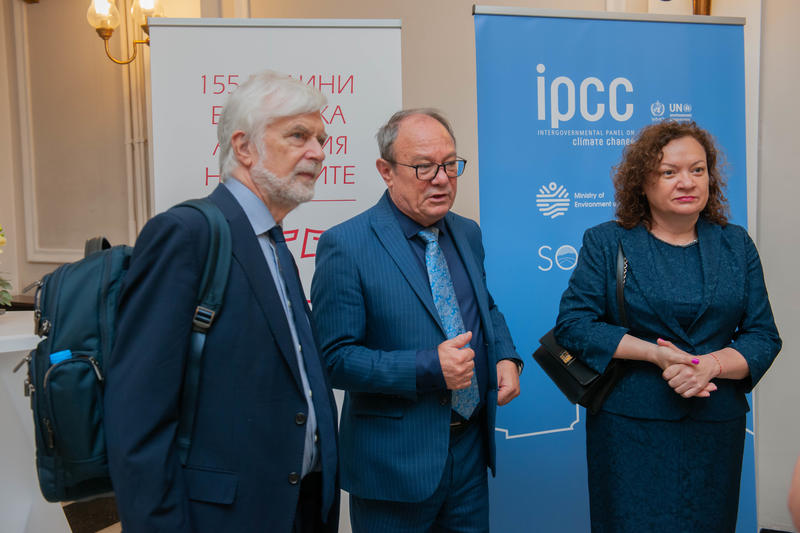A conference on climate change in the Black Sea region at the Bulgarian Academy of Science launched the Sofia hosting of the session of the UN Scientific Panel on Climate Change
25 Jul, 2024 | 12:40In the lead up to the 61st session of the UN Intergovernmental Panel on Climate Change (IPCC), a two-day international conference on "Climate risks in the Black Sea region" started today in Sofia, organized by the Bulgarian Academy of Science (BAS) in partnership with the Ministry of the Environment and Water as part of the satellite event program for Bulgaria's hosting of the 61st Session of the IPCC. Leading scientists, experts, and politicians will discuss critical issues related to climate change and its impact on the region of the Black Sea countries.
"With this conference, we will show how the Bulgarian academic community is able to help solve such global problems as climate change. From the issues that will be addressed, relating to climate change and events in the Black Sea Basin in recent years, it will become clear how they naturally connect to more global issues and to the larger agenda of the IPCC session, which Bulgaria is hosting,” said the Chairman of the BAS Julian Revalski during the opening of the conference.
"Climate skepticism and climate panic are equally harmful to our positive efforts to deal with such an important problem as climate change," said the Minister of Environment and Water Petar Dimitrov in his address. "In order to understand the scale of what is ahead of us, people of science are needed", he emphasized and reminded that the efforts by the Ministry of Environment and Water, outlined together with the previous minister Julian Popov, are aimed at making Bulgaria a hub for science for the Black Sea and climate change in the region. "We need responsible and engaged science. We want to support such science in the future. For the development of a policy to respond to climate change, it is important for us to support with funding from the state and the operational program projects that will deliver reliable scientific data", underlined Minister Dimitrov.
In his introductory address to the scientists, Sir Jim Skea, chairman of the UN Intergovernmental Panel on Climate Change, thanked the Bulgarian government for hosting the 61st Plenary Session of the IPCC in conduction of the seventh evaluation cycle of scientific reports in the field of climate change. "Here we will define the scope and structure of a special report on climate change and cities and a methodological report on predicting the causes of short-term climate processes. The IPCC is the United Nations body that assesses the science related to climate change. Over the past six cycles, the IPCC has set the stage for the development of the UN Framework Program on Climate Change, the Kyoto Protocol, and the Paris Agreement. For the first time, an IPCC meeting is held in Bulgaria, and only a few times this meeting has happened in a South-Eastern European country", emphasized Sir Jim Skia and shared that he is glad that Bulgaria nominated more than 20 scientists to participate in the meeting to determine the scope of the seventh special report of the IPCC in Malaysia this year.
The conference will continue tomorrow and will consider scientific reports by scientists from the BAS, NIMH, the Institute for Climate, Atmosphere and Water Research, the Frittof Nansen Institute of Oceanology, Sofia University, the National Institute of Geophysics, Geodesy and Geography, the Institute of Space Research and Technology, the Institute for Biodiversity and Ecosystem Studies and the Center for National Security and Defense Studies.
Bulgaria was chosen to host the 61st session of the IPCC after the successful application of our country during last year's COP28 climate summit in Dubai. From July 27 to August 2, more than 500 delegates from 150 countries will work on climate change issues in Sofia. Comprehensive IPCC Scientific Assessment Reports are published every 5 to 7 years. The IPCC is currently in its seventh assessment cycle, which officially began in July 2023. The session in Sofia will also discuss the conclusions of the sixth assessment cycle.
The accompanying program is organized by the Ministry of Environment and Water with the support of the Metropolitan Municipality under the patronage of the mayor of the capital Vasil Terziev, and includes more than 30 events. Its goal is to leave a visible mark on Bulgarian science and policies related to the consequences of climate change for Bulgaria and the region. As part of the satellite events program, the delegates, residents and guests of Sofia will be able to see the "Horizon" light show, which will illuminate the facade of the National Palace of Culture from July 27 to 29 from 10:00 p.m. to 11:00 p.m. with the support of the "Environment" Program 2021-2027.
Detailed information about all the events in the satellite program and about Sofia's hosting of the 61st IPCC Session can be found on the website of the Ministry of Environment and Water at:
https://www.moew.government.bg/bg/klimat/ipcc/satelitna-programa/
